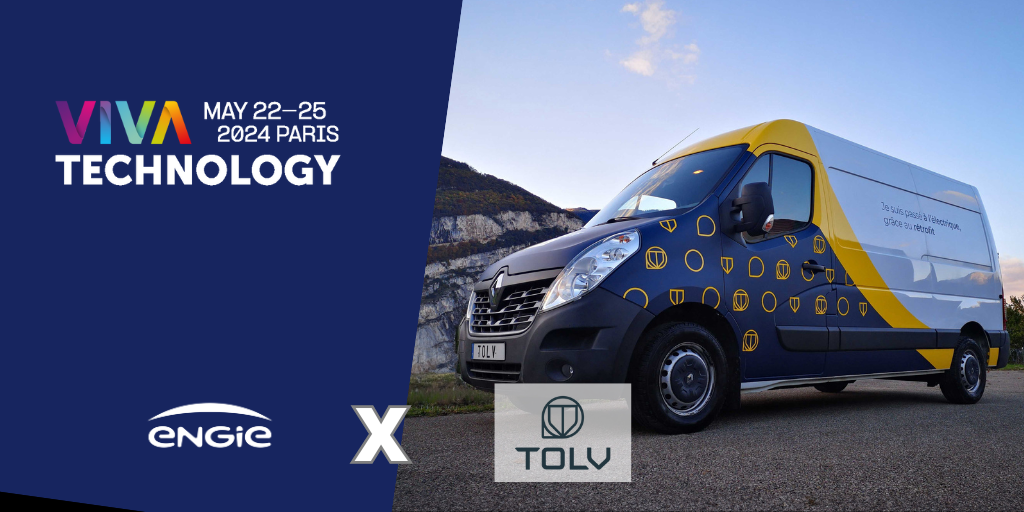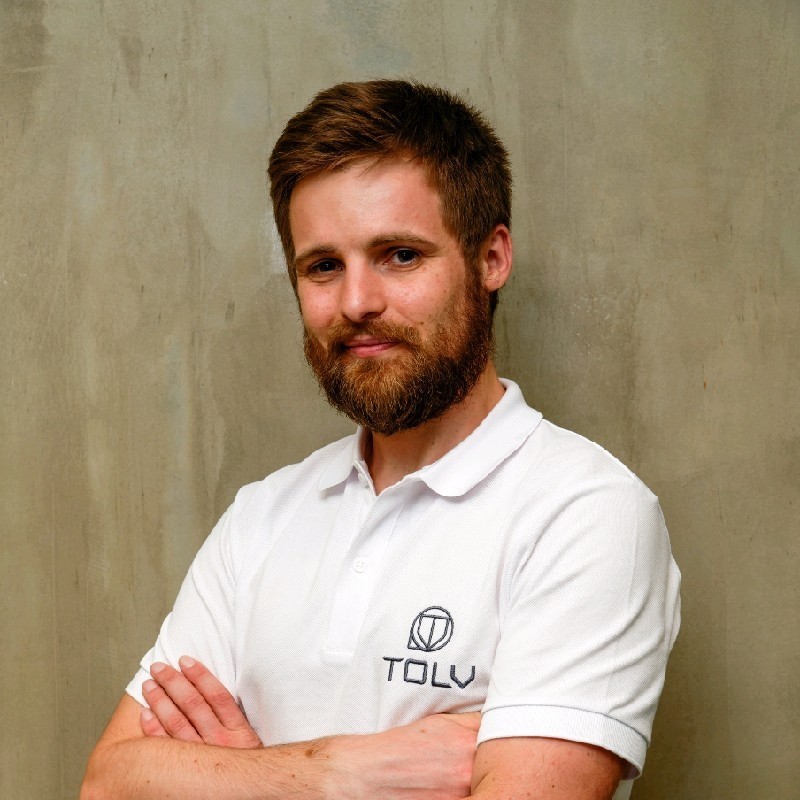


Our aim is to produce 9,500 kits by 2027 and 40,000 by 2030, this is equivalent to 131,681 tonnes of CO2 avoided if you compare it with the production of new electric vehicles.
Tolv is a company that has a mission: to decarbonise car fleets. Our idea was born of a simple realisation: there are 1.3 billion vehicles on the planet. To support the energy transition, we need to decarbonise this fleet of vehicles. Until now, the only solution offered to users was to get rid of their old car and then buy a new one - this is a huge waste of resources. We offer our customers an alternative technological solution, known as retrofitting, on an industrial scale. The process consists in converting internal combustion vehicles (petrol or diesel) into electric vehicles by installing a conversion kit and batteries. So our process replaces the most polluting parts of the vehicle while still retaining the parts that are usable. We apply this principle to professional fleets, whether in the public or private sector, for commercial vehicles - vans in particular. Vehicles are issued with a Crit'Air 0 sticker, which allows them to be driven anywhere, particularly in zones known as ZFEs - Zones à Faibles Emissions - Low Emission Zones. We now have a partnership with Renault Group for the conversion of one thousand Renault Master vans over 2024 and 2025.
Of course they can! We're actually going to opt for re-use as often as possible. There are several possible re-use cases, depending on the component and its condition. The engine and gearbox are items that will be sold on the second-hand market, either as a complete part that has been remanufactured (i.e. after testing and reconditioning so it is in a "like new" condition), or as spare parts. Parts that cannot be sold on the second-hand market will be recycled or depolluted. This is because some parts of combustion engines, fuel tanks and particle filters have been in contact with pollutants throughout their useful life. They cannot be thrown away in the dustbin or burnt, so we depollute them before they are recycled. All these processes are managed by the Renault Group Refactory in Flins, just like our retrofits.
Nowadays, Tolv has a 100% 'fabless' strategy. We're not setting up new plants; we're building on what already exists by teaming up with partners who already have sites and an existing workforce. This is the case of Renault Group, whose Refactory is Europe's first circular economy factory that is dedicated to transport. We provide them with an industrial file and they produce for us as subcontractors.
The French market has been an Eldorado for retrofit since a 2020 decree turned France into a pioneer in the field. Until now, it had been a small-scale operation, carried out at the local garage, approval was required from the manufacturer on a vehicle-by-vehicle basis. France legislated and allowed start-ups like ours to operate on an industrial scale, after a prototyping phase, just as if we were a car manufacturer. France is the only country in the world to allow this, even if attitudes and regulations are changing all over Europe. There are a dozen players in our country, from two-wheelers to HGVs, including three or four for light commercial vehicles alone. In 2024 Tolv is the only player authorised to deploy and deliver approved light commercial vehicles to customers in France.
Retrofitting has been around for a long time, particularly in the United States. What our start-up has invented is retrofitting on an industrial scale. In truth it is an innovation in production, methods and use. From a technological point of view, we have developed standard, modular electrification kits that can be adapted to as many light commercial vehicle models as possible, in as little as two days. Currently, this is the shortest lead time in the world for commercial vehicle retrofits .
ENGIE fell in love with our project while we were competing for the Prix Pépites, the group was part of the competition’s jury. ENGIE then invited us to speak at its Agora and on its stand at Viva Tech. It's a great showcase for us. And I think that the story we can tell together makes sense, it is a real message about decarbonising mobility.
Unfortunately it won’t be a vehicle, that would take up too much space! But I'll be coming along with a 1:43 scale model of a small van, some videos and some technical data sheets on our products, as we're now able to sell Renault Master conversions. The first deliveries to our customers will be made at the end of May.
Vivatech attracts a large number of top-level decision-makers. The show can therefore open up business opportunities for us, helping us to create connections and partnerships. We will also be starting to raise funds in the coming months, so the show will give us an opportunity to meet potential investors for our industrial roll-out in France and abroad.
It's probably a bit of a cliché, but I'd say... electricity. Man did not invent electricity - it exists in nature - but he learned to control it. And the benchmark we can set, the step that made it accessible to everyone today, was the invention of alternating current by Nikola Tesla. You're going to say that I chose him because he played a leading role in the development of the electric car. But before it became a car brand, Tesla was the name of an engineer! An inventor who earned almost no money at all, who patented very few things yet he made countless technologies accessible to as many people as possible.
In 2024, we will really focus on the delivery of our Renault Master model. We have a partnership with the Lyon metropolitan area, as well as with other cities and customers. We will also be raising funds in order to expand our business. We are preparing to open up to Europe by 2027. Finally, after the kits for the Renault Trafic in 2023 and the Renault Master today, we are advancing on a second-generation multi-product project for 2026, which will also be for the retrofit of light commercial vehicles. Our aim is to produce 9,500 kits by 2027 and 40,000 by 2030, this is equivalent to 131,681 tonnes of CO2 avoided if you compare it with the production of new electric vehicles. We also want to improve our technology’s performance.
We are considering this opportunity, but it must be accompanied by large sales volumes to ensure that the price is as affordable as possible for everyone. I don't think we'll be entering this market in the next two years, but possibly later!